Engineering North Carolina’s Future is driving tech, energy and innovation at UNC Charlotte
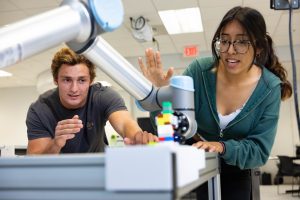
Highly skilled Niner Engineers are key to North Carolina’s continued rise in technology, energy and advanced manufacturing. Support for their education comes from Engineering North Carolina’s Future, an initiative backed by a $41.2 million investment in the University by the North Carolina General Assembly.
The investment, beginning in fall 2022 to the current fall semester, has yielded record-breaking student enrollment at the W.S. Lee College of Engineering and other significant advances.
- total enrollment is 4,168, a 23% increase
- first-time student enrollment is 1,109, a 69% increase (up 21% compared to last year this time).
- two new professional academic advisors for first-year students
- Nine new faculty members plus one new leadership position
The new positions are driving student success through teaching and innovation, including expanded hands-on training opportunities, increased recruitment and retention efforts and, in engineering, a new common first-year curriculum.
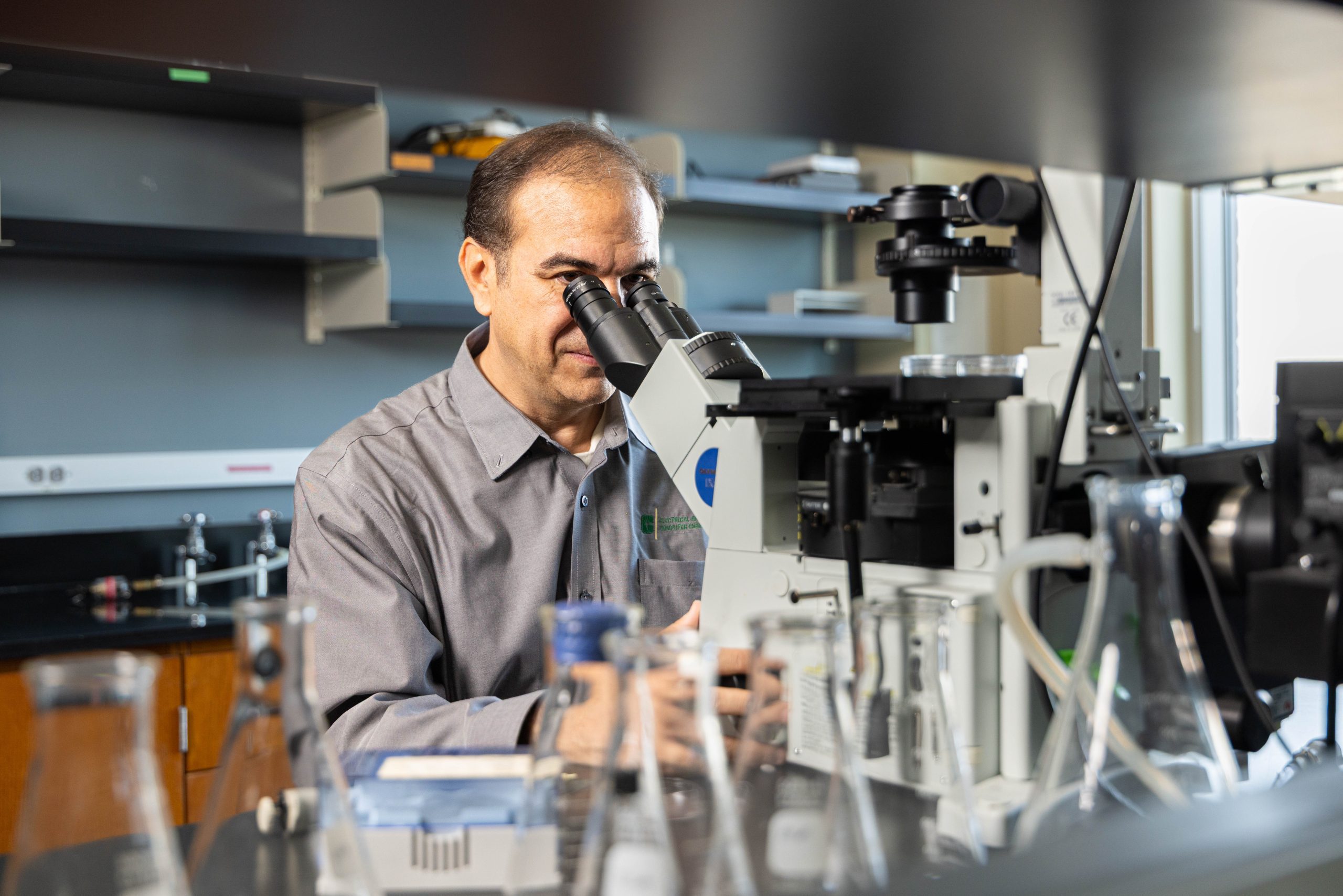
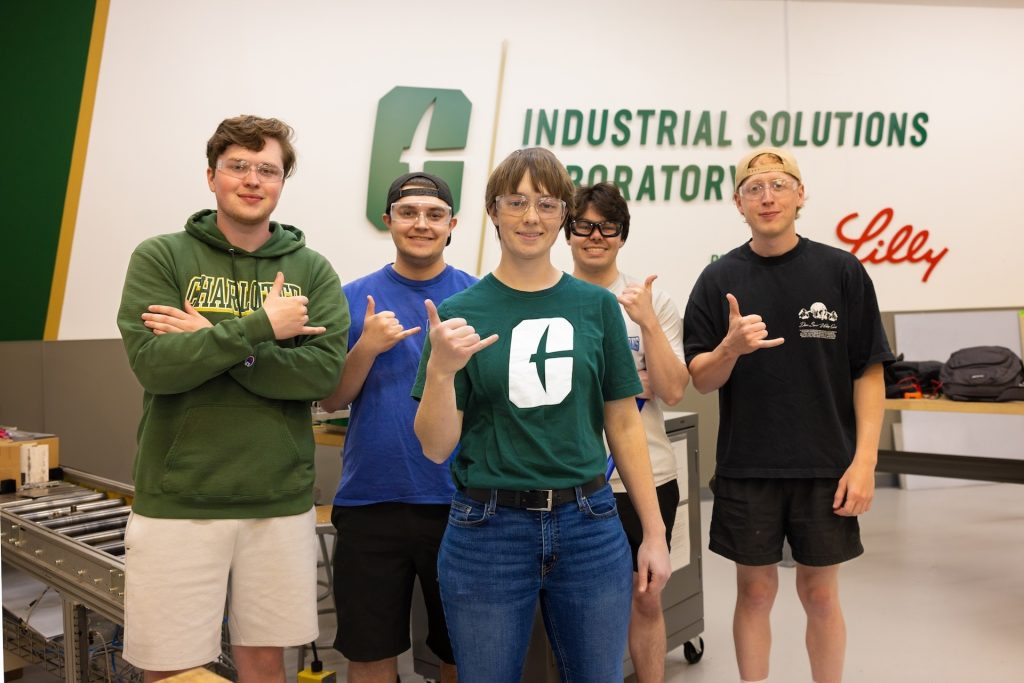
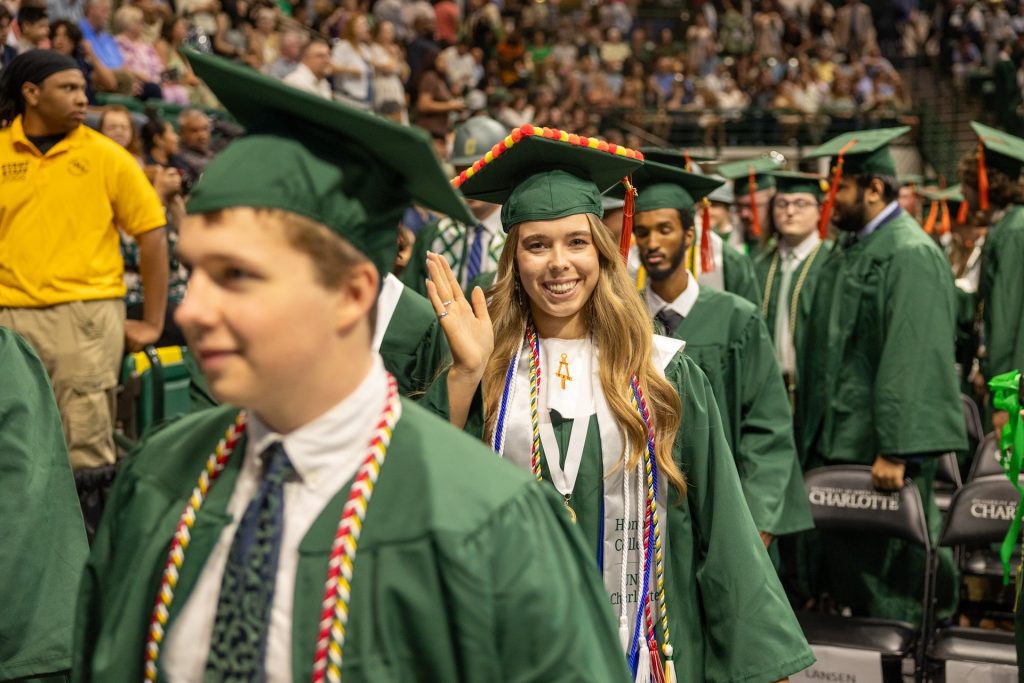
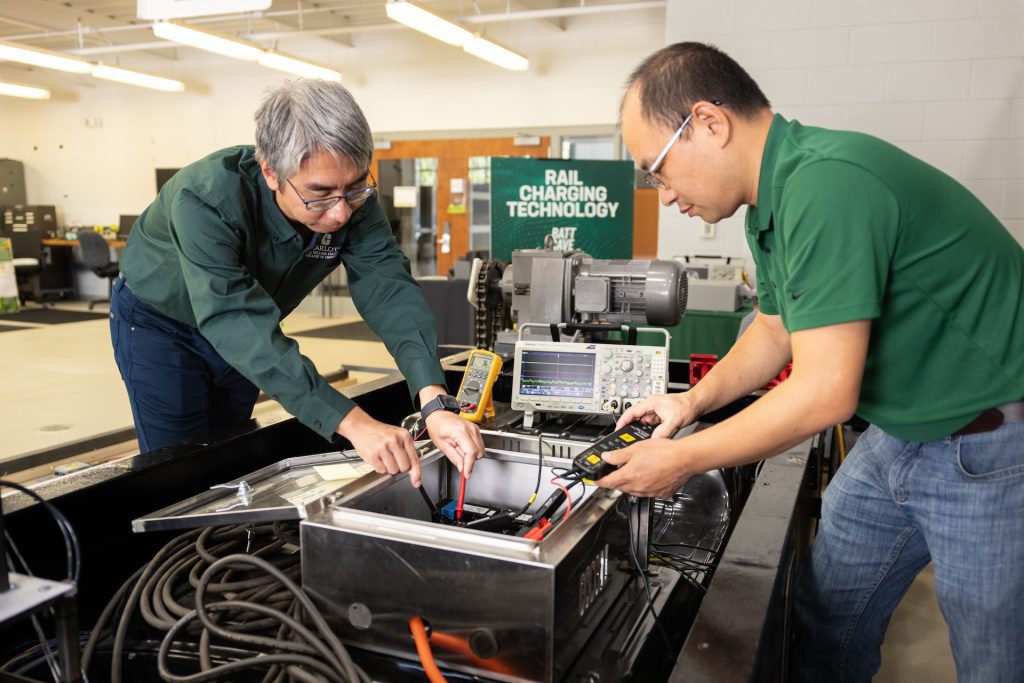
Engineering North Carolina’s Future is powering faculty research, expanding opportunities for new studies and breakthroughs at UNC Charlotte, including:
- Shawn Chen, assistant professor of mechanical engineering, is unraveling the complexity of ion-conductive materials, supporting more efficient energy storage solutions.
- Angelo Gaitas, associate professor of electrical and computer engineering, develops micro and nano sensors that measure heat, mechanics and electrical activity inside single cells.
About $1.5 million from the state investment helped UNC Charlotte become the first public university in the U.S. to establish a globally networked Super Fab Lab, a digital fabrication laboratory for creativity, mentorship, invention and industry partnerships.
Additional renovations to existing facilities include the North Carolina Battery Complexity, Autonomous Vehicle and Electrification Research Center, or BATT CAVE, which supports new research in battery engineering and the Industrial Solutions Lab powered by Lilly, that brings together students and industrial partners to tackle real-world engineering projects each year.